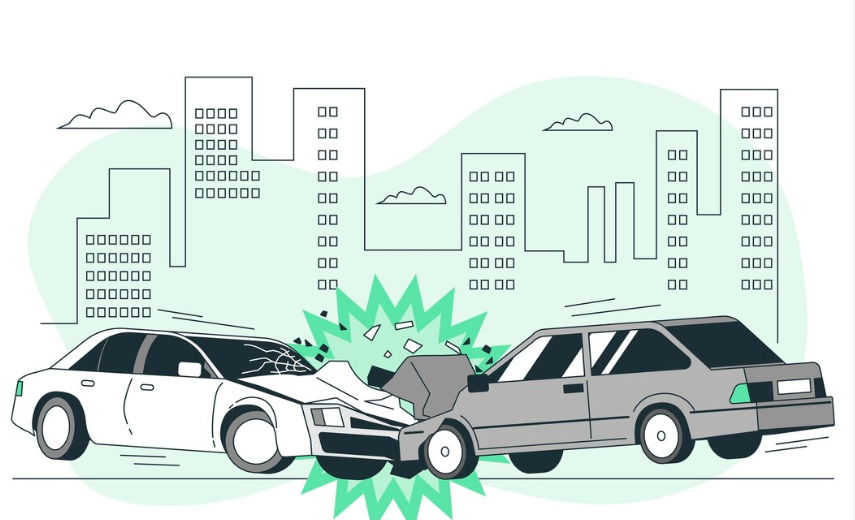You’ve just been in a car accident. As the initial shock wears off, you may feel relieved to walk away seemingly unscathed. However, your ordeal may not be over. Many car accident injuries don’t manifest immediately, sometimes taking days or even weeks to surface. This delayed onset can catch victims off guard and complicate both medical treatment and legal claims. Understanding why some symptoms appear late and which injuries commonly have delayed effects is crucial for protecting your health and rights after an accident with the help of car accident attorney St Louis.

The Deceptive Nature of Adrenaline
In the immediate aftermath of a car accident, your body’s natural defense mechanism kicks in, flooding your system with adrenaline. This hormone surge can mask pain and injuries, creating a false sense of well-being. As a result, you might walk away from a crash feeling relatively unscathed, only to experience symptoms days or weeks later.
Common Delayed Symptoms to Watch For
It’s crucial to be aware of potential delayed symptoms that may manifest after a car accident:
- Headaches: These can indicate concussions, whiplash, or other head injuries.
- Neck and shoulder pain: Often associated with whiplash, these symptoms may worsen over time.
- Back pain: This could signal spinal cord injuries or soft tissue damage.
- Abdominal pain: Potentially indicating internal bleeding or organ damage.
- Numbness or tingling: These sensations may point to nerve damage or spinal injuries.
- Emotional changes: Post-traumatic stress disorder (PTSD) or other psychological effects can emerge gradually.
The Importance of Prompt Medical Attention
Even if you feel fine immediately after an accident, seeking medical evaluation is essential. A healthcare professional can identify potential injuries before they worsen and document your condition for insurance or legal purposes. Remember, some injuries, like internal bleeding or traumatic brain injuries, may not present obvious symptoms initially but can be life-threatening if left untreated.
By understanding the phenomenon of delayed symptoms and taking proactive steps to monitor your health, you can protect yourself from the potentially serious consequences of “silent injuries” following a car accident.
6 Common “Silent” Injuries
After a car accident, some injuries may not be immediately apparent. These “silent” injuries can develop over time, potentially causing serious health issues if left untreated. Here are six common delayed-onset injuries to be aware of:
Whiplash
Whiplash is one of the most frequent car accident injuries, often manifesting days or even weeks after the incident. This neck injury occurs when the head is suddenly jerked back and forth, straining the soft tissues. Symptoms may include neck pain, stiffness, headaches, and dizziness.
Concussion
A mild traumatic brain injury, concussions can be easily overlooked in the immediate aftermath of a crash. Watch for signs like confusion, memory problems, headaches, and difficulty concentrating, which may appear gradually.
Back Injuries
The impact of a collision can cause spinal misalignment or disc herniation, leading to chronic back pain. These issues might not be noticeable right away but can worsen over time without proper care.
Internal Bleeding
Hidden beneath the skin, internal bleeding is a potentially life-threatening condition that may not show symptoms immediately. Be alert for abdominal pain, deep bruising, or unexplained dizziness and fainting.
Psychological Trauma
The emotional impact of a car accident can be just as severe as physical injuries. PTSD, anxiety, and depression may develop days or weeks after the event, affecting your overall well-being.
Soft Tissue Injuries
Sprains, strains, and contusions to muscles, ligaments, and tendons can take time to manifest. These injuries often result in pain, swelling, and limited mobility that worsen gradually.
Remember, seeking prompt medical attention after an accident is crucial, even if you feel fine initially. Many of these silent injuries can be effectively treated when caught early, preventing long-term complications and ensuring a smoother recovery process.
Protecting Your Legal Rights: How Delayed Symptoms Impact Your Car Accident Claim
Timely Medical Attention
After a car accident, seeking immediate medical attention is crucial, even if you feel fine. Some injuries may not manifest symptoms immediately, but prompt medical evaluation can document potential issues. This documentation becomes vital evidence if symptoms develop later, strengthening your claim and demonstrating a direct link between the accident and your injuries.
How Delayed Symptoms Impact Insurance Claims
Insurance companies often view delayed symptom reports skeptically. They may argue that your injuries aren’t related to the accident or that you’re exaggerating your condition. To protect your rights, maintain detailed records of all medical visits, treatments, and how your symptoms progress over time. This documentation can help counter insurance company tactics and support your claim for fair compensation.
Legal Implications of Delayed Injury Reporting
Many states have statutes of limitations for filing car accident claims. Delayed symptoms can complicate matters if they arise close to these deadlines. It’s essential to consult with a personal injury attorney as soon as possible after an accident. They can advise you on your rights, help preserve evidence, and ensure you don’t miss critical filing deadlines, even if your symptoms haven’t fully manifested.
Final Thoughts
As you navigate the aftermath of a car accident, remain vigilant for delayed symptoms in the following days and weeks. Your body’s initial shock response can mask injuries, making ongoing self-assessment crucial. Document any new pain, stiffness, or cognitive changes, and seek prompt medical attention if concerns arise. Remember that seemingly minor accidents can still result in serious injuries with delayed onset. Protect your health and legal rights by maintaining detailed records and consulting with medical and a car accident attorney st louis as needed. By staying proactive and informed, you can ensure proper care and compensation for any silent injuries that may emerge over time.


